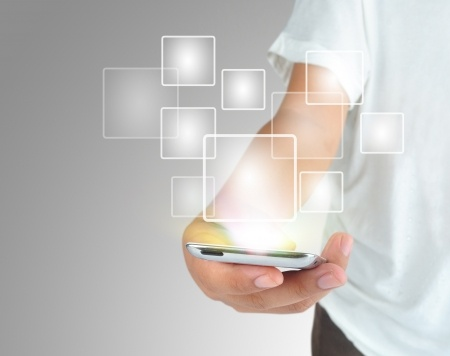
Emmanuel Gabriel
Works at OpenBinacle LimitedARTICLE

Wouldn't it be nice to have Honda's Asimo wake us up for work, put the eggs in the frying pan and bread in the toaster, and send us off like something out of a science fiction story by Ray Bradbury? The friendly household robot that helps with the chores is one image of artificial intelligence (AI) that many of us can get behind.
Then there's the super-efficient AI in factories, on our computers at work, making repetitive work easier, minus the errors we humans inevitably make. It's easy to picture the robotic concierge, checking in guests at the front desk of a hotel or government building, and making sure no unauthorized people are around. Or perhaps the person who takes your order at the drive-in will no longer be a person, but a tireless machine, which will be faster, won't need a break and won't ever ask for a payrise
AI is set to make our lives easier - sooner than you think, according to experts. But can AI take away our jobs? The big question is, can AI replace humans at everything we do? And what can be the real consequences for the future of humanity if AI does things better than us?
Researchers from Oxford University's Future of Humanity Institute spoke to 352 experts in machine learning to see what they had to say about our future with AI. The unnerving forecast is this:
In ten years, AI will be better than us at translating languages, driving trucks and writing high school essays. If AI keeps growing the way it has so far, then machines will be taking our retail jobs by 2031 and be putting best-selling writers out of business by 2049. By 2053, surgeons will have to find other means of livelihood, because AI will outperform them. Some experts say that in the next 120 years - others say sooner - AI could take over all human jobs.
So, what does this mean for society? Will we all get to enjoy the benefits of having everything done for us by capable machines, while we take up our favorite leisure activities in the middle of the day? Not exactly.
According to experts, AI will probably have the biggest impact on people who have lower income earning jobs. The Council of Economic Advisors (CEA), who advise the White House, have already considered robots in the workforce. People in low paying jobs are the most likely to be replaced with robots. According to the CEA, the chances of this happening is a whopping eighty-three percent. This forecast is scary because, according to 2014 figures from data compiled by Goldman Sachs, the majority of American jobs pay less than $20 an hour.
If the experts are right, millions of salespersons, cashiers, service workers in the food industry, office clerks, waitresses, waiters, laborers, cleaners, janitors and other blue collar workers are going to lose their jobs to machines. The report by CEA also shows that people who earn more are less likely to be replaced by AI. So, if you make more than $20 an hour, there's a thirty-one percent chance that a robot will be writing your articles in the future.
If you earn $40 an hour, however, there's only a four percent risk that a robot could replace you. Plus, there will always be a need for skilled people. (You can safely apply to jobs without having to worry about robots taking your job in the near future.)
Given such a possible scenario may occur soon, President Obama's education policies make a lot of sense. Rather than encouraging a Universal Basic Income, to be paid to everyone to make up for large scale automation that people are afraid of, President Obama wanted more funding for technical education. Jobs of the future will be different, and we need to prepare for them.
31/08/2017
Join
Home - About Us - Privacy - Terms and Conditions
Social Features - Contact Us - More
© 2025 OpenBinacle.
Social Features - Contact Us - More
© 2025 OpenBinacle.
